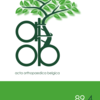Empiric antibiotic treatment for periprosthetic joint infections: a national survey in The Netherlands
Periprosthetic joint infection, arthroplasty, antibiotics, empiric treatment, DAIR
Published online: Jan 08 2024
Abstract
Early periprosthetic joint infection (PJI) is generally treated by means of debridement, antibiotics and implant retention (DAIR). Subsequently, empiric antibiotic therapy is commenced directly after surgery which is important for the successful treatment of PJI. The aim of this study is to evaluate current nationwide empiric antibiotic treatment regimens for PJI in the Netherlands. An electronic 15-question survey addressing the empiric antibiotic treatment strategy for PJI following THA or TKA was sent to orthopaedic surgeons in all Dutch hospitals in April 2019.
Orthopaedic surgeons active in every single Dutch orthopaedic hospital (n=69) were approached. At least one surgeon in every hospital completed the survey (100% response rate). A protocol dictating the empiric antibiotic treatment following DAIR was used in 87% (60 hospitals). Among all hospitals, 72% (50 hospitals) used antibiotic monotherapy and 28% (19 hospitals) used combination therapy. Cefazolin was the most commonly used regimen in centres opting for monotherapy (42%, 29 hospitals). Similar regimens were used for the empiric treatment of suspected early PJI after revision surgery and for acute hematogenous PJI. In septic patients, combination therapy was preferred (64%). 81% (56 hospitals) incubated tissue biopsies for a minimum of 10 days whereas 16% (9 hospitals) indicated an incubation period of 7 days or less. Even in a small country such as the Netherlands there seems to be no uniformity regarding empiric antibiotic treatment for PJI. Increased uniformity regarding empiric treatment could be an important first step in improving PJI treatment.
